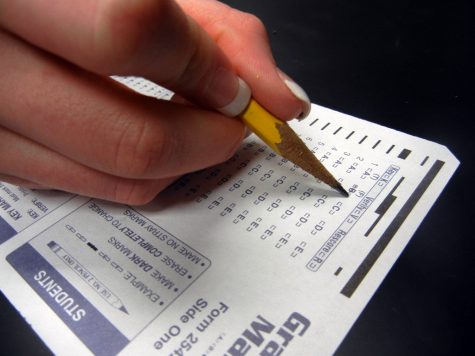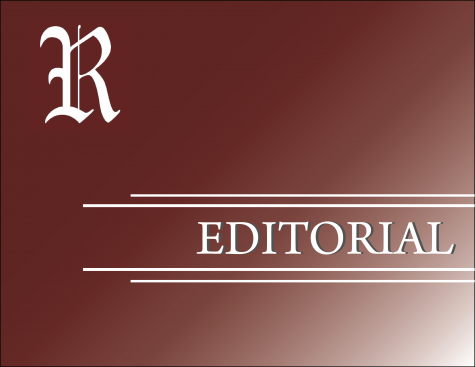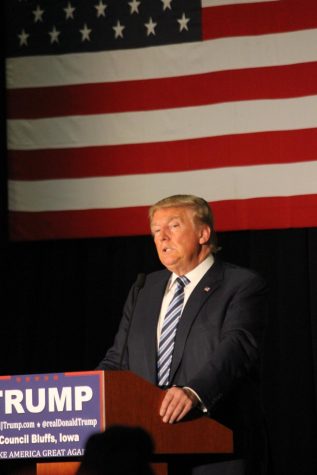Michael Bloomberg: Republican’s Ace in The Hole
November 20, 2019
At a time in which America couldn’t be more polarized in terms of party lines, the 2020 Presidential election is shaping up to be a big one.
It is apparent that there is much at stake for both political parties, particularly the Democratic Party, which has experienced one of the largest political upsets in history due to their stinging defeat by then-Republican Presidential candidate, Donald Trump.
A notable common motif among the candidates for Democratic President is the shared belief that the Democratic front-runner must be a candidate who is capable of defeating Donald Trump.
However, one potential democratic candidate will irrefutably change the democratic landscape during the 2020 Presidential election: Michael Bloomberg.
Recent reports have suggested what appears to be Michael Bloomberg’s potential bid for the Presidential election as a Democratic candidate. Although it seems to be a late entry, such a move is not necessarily an unprecedented one, as notably, Robert F. Kennedy began his run for President in mid-March of 1968.
What does seem to be the first sign that Bloomberg is going to be a game-changer in terms of the Democratic field of candidates is that he has oddly decided not to contest primaries in key states such as Iowa and New Hampshire, which seemingly leaves him at a disadvantage.
However, one should not swiftly deduce that there is no method behind what appears to be Bloomberg’s madness. By making moves like this that put him at a significant disadvantage, it becomes relatively apparent that Bloomberg is not likely to win the Presidency. Therefore, trying to differentiate himself from other candidates would appear almost fruitless.
After all, polls reveal 4% of voters support the former mayor. Although this number is abysmal, it actually hurts the Democratic Party significantly more than it would hurt Bloomberg with his expansive wealth.
This trifecta of disastrous results for Bloomberg reflects poorly on the Democratic Party. Bloomberg’s strange running decisions and detrimentally low-polling conveys a message to American voters that the Democratic Party is ineffective in terms of the strategy needed to run the country and overall lacks support, as low polls reflect that the American populous does not want a Democratic President.
This is not necessarily the case, as other candidates such as Joe Biden are doing well in terms of polling. However, Bloomberg’s egregious actions thus far in the election do not bode well for the image of the Democratic Party, especially at a time where a victory is crucial to rebound from the loss suffered in 2016.
In this respect, what the Democratic Party may see as a hindrance to its prospects of securing a victory in 2020, Republicans see as an opportunity to take advantage of.
Thanks to the predominantly negative reception Bloomberg would get if he declared himself an official candidate of the Democratic Party, the Republican Party would be able to use what harms the Democratic Party as something that can benefit their prospects of a Republican victory in 2020.
The coalition of Bloomberg’s low polling and late entry into the race would even serve another niche. Surely, Bloomberg’s 4% polling is dismal, but from the perspective of Democrats, that 4% is critical. That 4% of votes can be pivotal in terms of votes necessary to decide a democratic front-runner, or moreover, be the deciding factor in the election. Bloomberg’s holding of this 4% of votes in the polls signifies “vote stealing,” the deduction of votes from other candidates who have more potential in the races than one who participates in the stealing of votes.
By stealing 4% of the vote, Bloomberg is taking away not only support given to the Democratic Party for such a high-stakes race, but also giving possible leverage for the Republican Party to secure votes necessary to have a Republican President, such as current U.S. President, Donald Trump.
Such certainly does raise many queries about the current state of our election process. The fact that now would be considered “late” into the election is quite baffling, as we do not elect the President until November of 2020.
Bloomberg’s entry is not late at all. What Bloomberg’s entry as “late” says about our democratic process, is that it is not emphasizing that we as a nation need a lot of time to make such substantial decisions about who to task with the responsibility of running the United States.
Undoubtedly, Bloomberg’s decision to officially run for president would be a controversial one with regard to the Democratic Party, and the very fabric of the 2020 election as well. In fact, by announcing a bid for president as a Democratic candidate I believe it intentionally places more pressure on the Democratic Party, as Bloomberg has the potential to steal votes necessary to inch the possibility of a republican victory closer to fruition. Much discussion transpires today about the sanctity of our election process, and I see Bloomberg’s candidacy as a Democrat perpetuating those discussions.
If Bloomberg were to run as a Republican, he would minimize the probability that other democratic candidates lose necessary votes, and would maybe even be better off as a Republican in the polls. In this respect, everyone wins, and maybe our polarized country won’t have to debate the sanctity of our elections so much.
Time will tell if Bloomberg makes the decision to run for president as a Democrat.
Additionally, time will tell how his official bid will shake up the current state of the Democratic Party. However, if Bloomberg were to proceed, Republicans are likely to be ecstatic about it. One thing is certain: Bloomberg is a game-changer in every sense of the word. Only time will tell how he will play into the grand scheme of things in this high-stakes election.
Noah Osborne, FCRH ’23, is a journalism major from Harlem, N.Y.










If you want a picture to show with your comment, go get a gravatar.